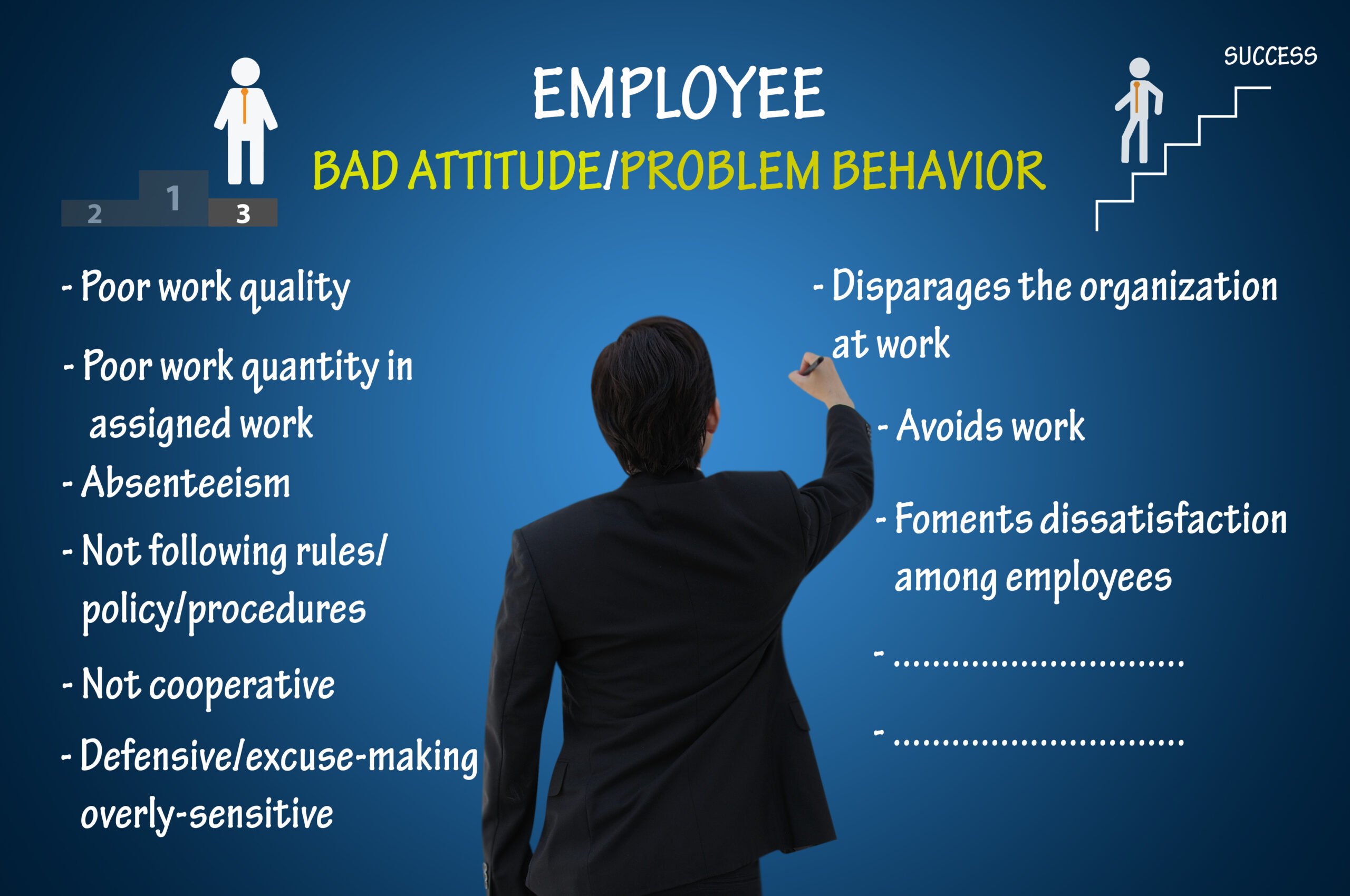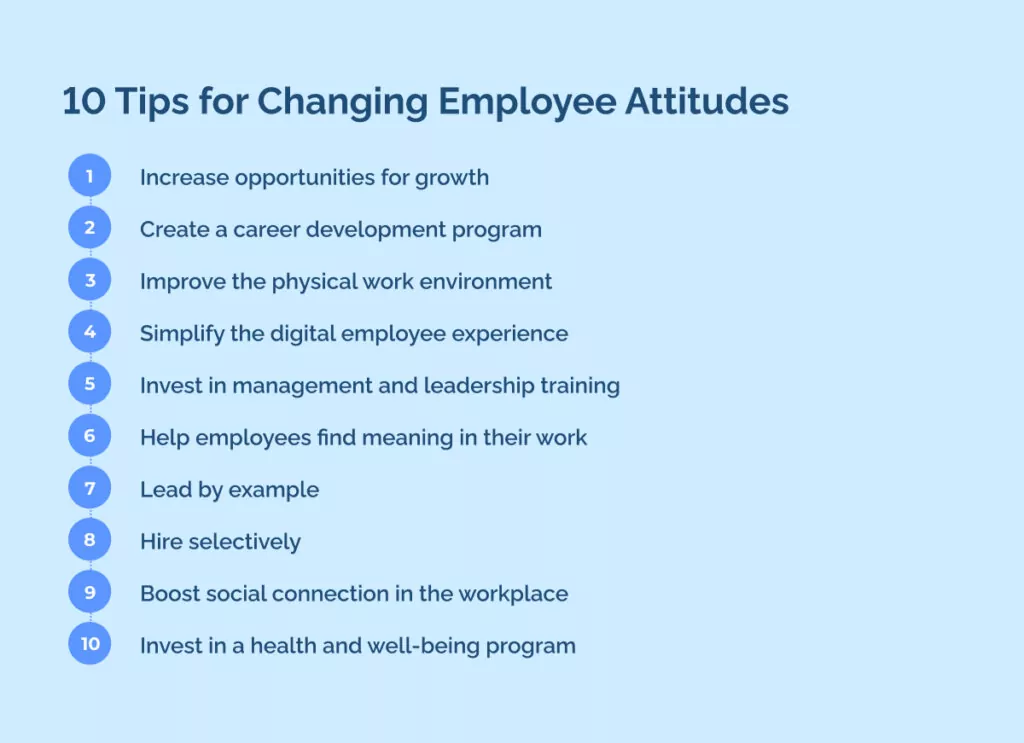How To Change Negative Employee Attitudes

Employee morale plummeting? Productivity stalled? Negative attitudes are a virus, and immediate action is critical to inoculate your workforce and restore a positive, thriving environment.
This article provides actionable strategies to combat negativity, rebuild trust, and reignite employee engagement, drawing on expert advice and proven methodologies.
Identify the Root Cause
Before implementing solutions, pinpoint the source of the negativity. Anonymous surveys and open forums can reveal underlying issues. Are employees feeling unheard, undervalued, or overworked?
Gallup's research consistently shows that feeling valued is a major driver of employee engagement. Ignoring this leads to disengagement and resentment.
Uncover Specific Pain Points
Dig deeper than surface-level complaints. Poor communication, lack of growth opportunities, or unfair treatment are common culprits. Look for patterns in the feedback.
For example, are complaints concentrated in a particular department or related to a specific manager? This focused feedback allows for targeted interventions.
Implement Immediate Corrective Actions
Address identified issues swiftly and transparently. Acknowledge employee concerns and outline concrete steps for improvement. Silence breeds distrust and fuels negativity.
This could involve restructuring workloads, providing additional training, or addressing toxic workplace behaviors. Immediate action demonstrates commitment.
Improve Communication Channels
Establish clear, open lines of communication between management and employees. Regular updates, feedback sessions, and one-on-one meetings are essential.
Consider implementing an "Ask Me Anything" session with senior leadership to address concerns directly. Openness fosters trust and transparency.
Empower Employees and Recognize Achievements
Give employees more autonomy and control over their work. Empowered employees are more engaged and invested in their success.
Implement programs that recognize and reward outstanding performance. Public acknowledgement of achievements boosts morale and reinforces positive behaviors.
Foster a Culture of Appreciation
Encourage managers to provide regular, specific feedback to their team members. A simple "thank you" can go a long way in boosting morale.
Develop a peer-to-peer recognition program where employees can nominate their colleagues for outstanding contributions. Cultivate a culture of positive reinforcement.
Address Toxic Behaviors Directly
Do not tolerate bullying, harassment, or other toxic behaviors. Implement a zero-tolerance policy and enforce it consistently.
Provide training on conflict resolution and communication skills to help employees navigate difficult situations constructively. Create a safe and respectful work environment.
Offer Mediation and Counseling Services
Provide access to mediation and counseling services to help employees resolve conflicts and manage stress. Proactive support can prevent small issues from escalating into larger problems.
Employee Assistance Programs (EAPs) offer confidential counseling and support services to employees and their families.
Monitor Progress and Adapt
Continuously monitor the effectiveness of your interventions. Track employee morale, productivity, and turnover rates.
Be prepared to adapt your strategies as needed. What works for one team or individual may not work for another. Maintain flexibility and responsiveness.
Regular pulse surveys and feedback sessions can provide valuable insights into the impact of your efforts. Data-driven decisions are key to sustained improvement.
The fight against negativity is ongoing. By implementing these strategies and consistently prioritizing employee well-being, you can create a positive and productive work environment where employees thrive. Ignoring negativity is no longer an option.


















